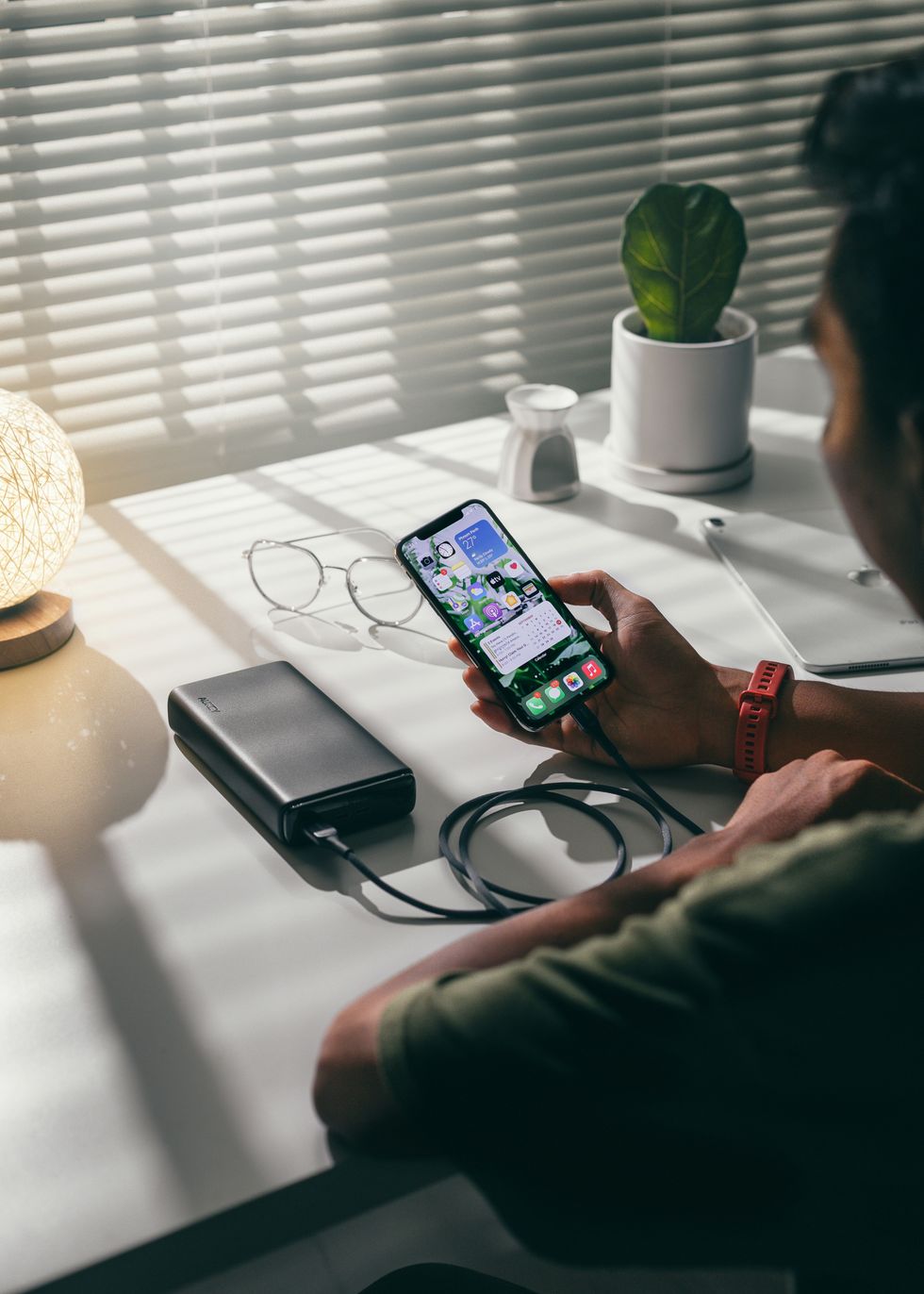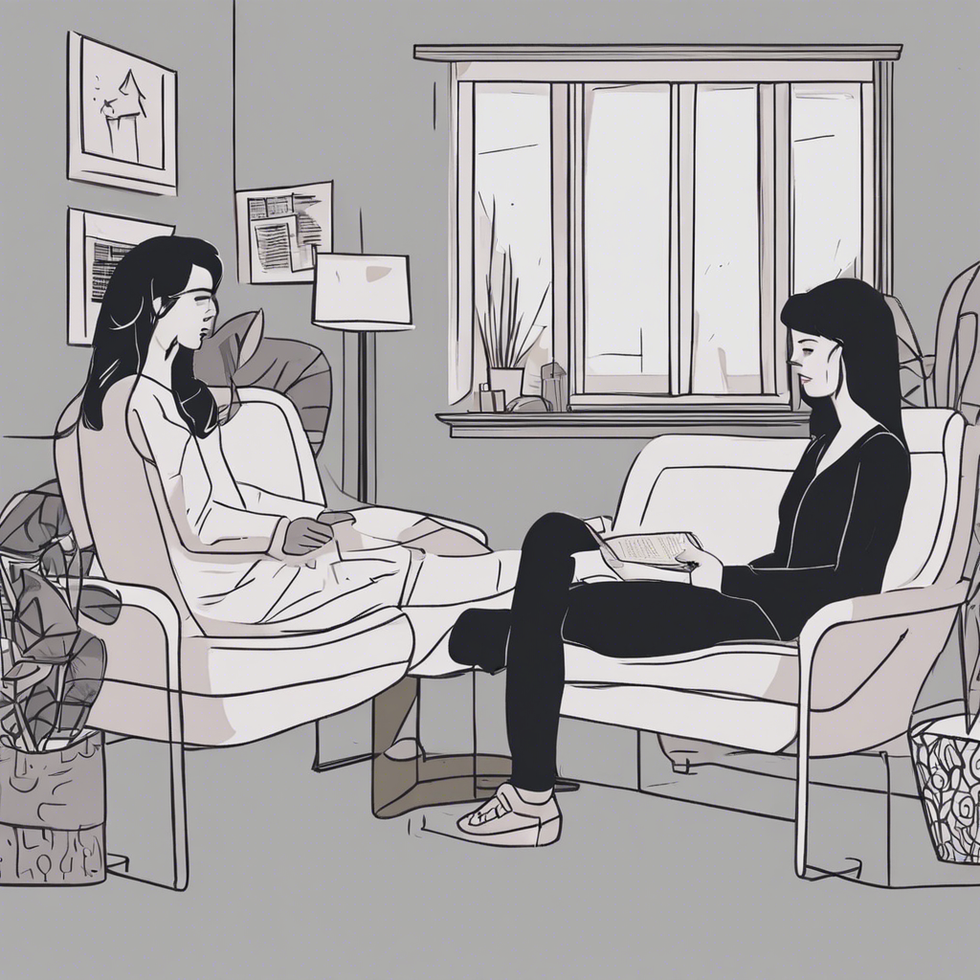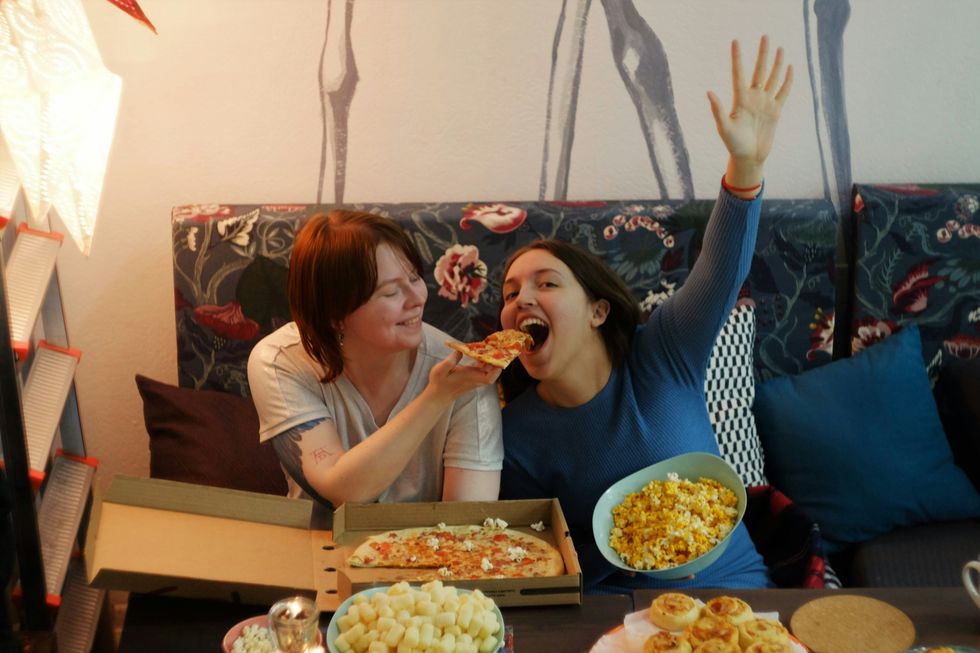I have written extensively about two parables in Odyssey articles so far: the Parable of the Lost Son and the Parable of the Tax Collector and the Pharisee. I think about these parables all the time in terms of how I should regard, treat, and live among others. But another parable I like, that isn't quite in the Bible (and functions more as a simple story) is the Parable of the Alcoholic Father.
My perception of the parable goes like this: a violently abusive alcoholic has twin sons. One of the sons turns into a violently abusive alcoholic, just like his father. The other son turns into an abstinent, supportive father and parent, and when both sons were asked how they turned out to be who they were, they answered: "Given who my father was, how could I not?"
What's the lesson we gain from the Parable of the Alcoholic Father? It might be something as simple as the fact that we have a choice, but what is it's not like we decide overnight that we decide whether we want to be like our fathers or not. It is a lifelong choice, a gradual battle where we succeed sometimes and fail other times, and everything we do contributes to what we become. What even is a choice, and do we have them? Even though determinists in psychology often say that we don't, I've written before about how a choice, in HBO's Westworld, is how we deal with our defining life moments. A choice is how we deal with trauma, and how we deal with the things in our lives that are "too precious to lose."
But overwhelmingly, the language of the two brothers indicates that they don't, in fact, have a choice. Their destinies, as either the model of their father or the exact opposite of him, is predetermined. Both brothers share the powerful mantra of "how could I not?" However, they see the world from very different perspectives. One views his life through a lens of powerlessness, and the other views his through a similar lens of powerlessness on a different path. They both believe that they have a destiny, and that's what makes the paradox of the parable so fascinating to me.
Does having a choice mean believing you don't have a choice? Perhaps. Instead, the parable is special because it helps to illustrate a concept, and a powerful one at that: perspective is often the most powerful thing in determining who we are. The self-fulfilling prophecy, in psychology, is defined as a "prediction that causes itself, directly or indirectly, to be true." The parable shows the power of the self-fulfilling prophecy, and above all the power of belief. The most common
For the alcoholic twin, believing that he was going to be just like his alcoholic father was half battle in becoming his just like his father. For the abstinent brother, believing that he was going to be the opposite of his alcoholic father was also half the battle.
My initial impressions of the parable have changed drastically from what I think of it now - what the parable of the alcoholic father shows is the power of believing in yourself. It's quite obvious how much more difficult and challenging it is to do something when you don't believe, and I know some people who think it hubris or sheer arrogance to believe that you can do anything. But many of those same people would, instead, would buy into the words that "I can do all things through Christ who strengthens me." (Phillipians 4:13)
The truth is, when you believe in something, when you believe unapologetically that you can do something, you will constantly make decisions and pursue means that fulfill those beliefs. It's no secret that believing in an unconditionally loving God will make you spend more time going to church and reading scripture, nor is it a secret that believing you're a hard and tenacious worker will make you do more at work. It's no secret that believing you're a good student will make you spend more time doing homework or studying, nor is it a secret that believing you're a good person will make you more likely to treat people more kindly.
And back to the Parable of the Alcoholic Father: maybe the lesson here isn't as simple as the fact that we have a choice, but believing we have a choice, and that we are capable of executing it. And there's an added layer to the power of the parable - when you have a goal you're aiming for, ask yourself, in terms altered to your own personalized circumstances, "given everything that's happened, how could I not?"



 Photo by
Photo by  person holding black smartphone on white textile
Photo by
person holding black smartphone on white textile
Photo by  StableDiffusion
StableDiffusion
 Photo by
Photo by  Photo by
Photo by 
 roommate as a therapist
StableDiffusion
roommate as a therapist
StableDiffusion
 woman in white shirt eating pizza
Photo by
woman in white shirt eating pizza
Photo by  person holding remote pointing at TV
Photo by
person holding remote pointing at TV
Photo by  person holding assorted clothes in wooden hanger
Photo by
person holding assorted clothes in wooden hanger
Photo by  a couple of
a couple of  friends cleaning apartment
StableDiffusion
friends cleaning apartment
StableDiffusion
 man driving car during golden hour
Photo by
man driving car during golden hour
Photo by  bacon strips and melted cheese topped fries on oval white and blue platter with gray stainless steel forks
Photo by
bacon strips and melted cheese topped fries on oval white and blue platter with gray stainless steel forks
Photo by  selective focus photography of eyeshadow palette
Photo by
selective focus photography of eyeshadow palette
Photo by  brown wooden framed white padded chair in between green indoor leaf plants inside bedroom
Photo by
brown wooden framed white padded chair in between green indoor leaf plants inside bedroom
Photo by  women forming
women forming  taking
taking  man in red polo shirt pouring wine on clear wine glass
Photo by
man in red polo shirt pouring wine on clear wine glass
Photo by  woman in black jacket standing on road during daytime
Photo by
woman in black jacket standing on road during daytime
Photo by 
 StableDiffusion
StableDiffusion
 StableDiffusion
StableDiffusion
 student thinking i shouldnt have procrastinated all semester
StableDiffusion
student thinking i shouldnt have procrastinated all semester
StableDiffusion
 Photo by
Photo by  Photo by
Photo by  Photo by
Photo by  StableDiffusion
StableDiffusion
 StableDiffusion
StableDiffusion
 Photo by
Photo by  Photo by
Photo by 


 Lumiere figure at the Disney Store at the Ala Moana Shoppi… | Flickr
Lumiere figure at the Disney Store at the Ala Moana Shoppi… | Flickr








 StableDiffusion
StableDiffusion StableDiffusion
StableDiffusion 10. Extra BlanketsJuwenin Home 100% Cotton Knitted Throw Blanket
10. Extra BlanketsJuwenin Home 100% Cotton Knitted Throw Blanket StableDiffusion
StableDiffusion StableDiffusion
StableDiffusion File:Kishlaru familie.jpg - Wikimedia Commons
File:Kishlaru familie.jpg - Wikimedia Commons Photo by Hanna Balan on Unsplash
Photo by Hanna Balan on Unsplash StableDiffusion
StableDiffusion black blue and yellow round illustrationPhoto by
black blue and yellow round illustrationPhoto by 





